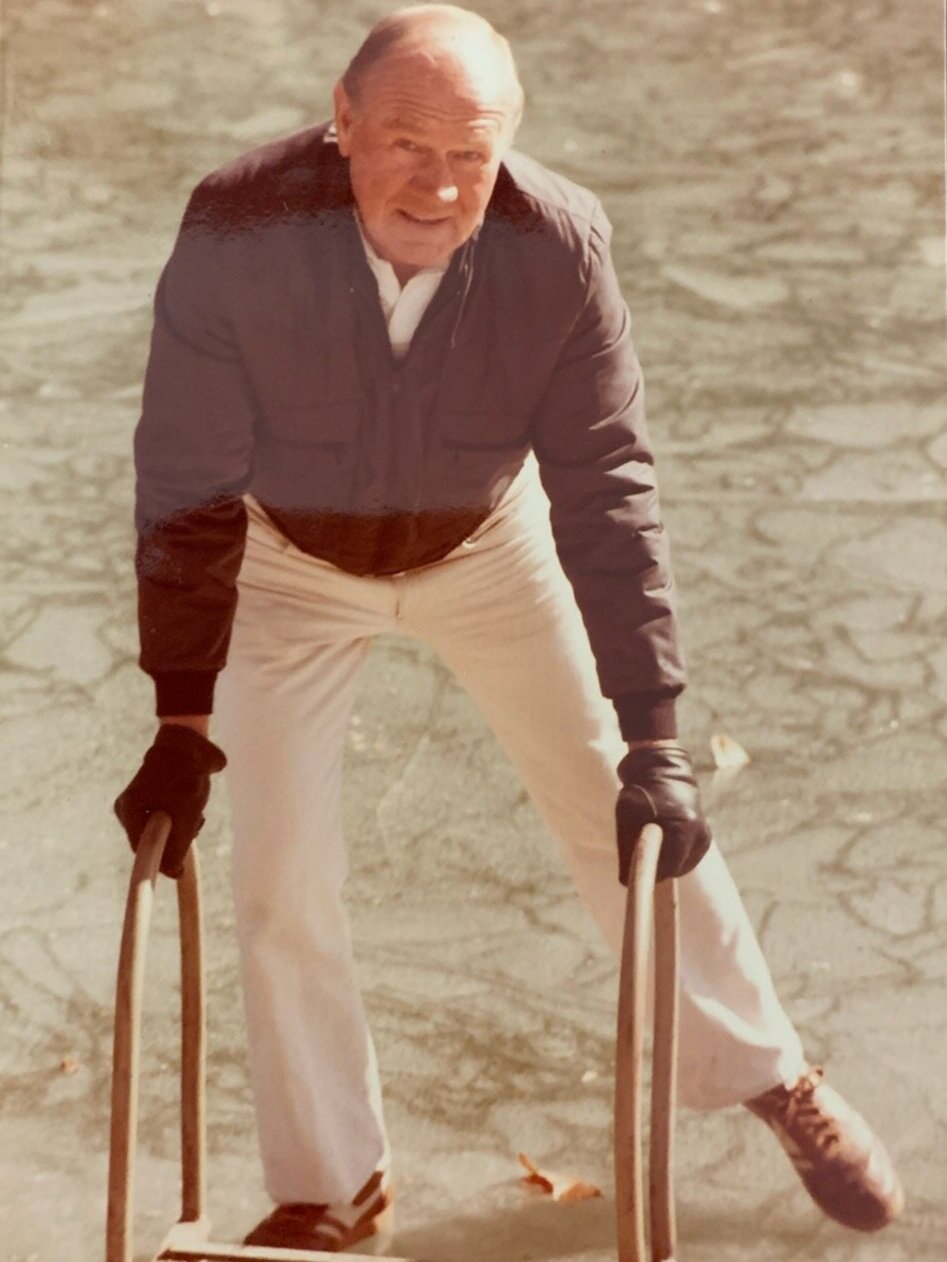Frank Vlasek, born in 1921 to Czech immigrants, recounts his life growing up in the Texas Hill Country.
The following biographical account was given by a family member and arranged by the Czech Center Museum Houston.
Frank David Vlasek was one of 12 children, born on February 2, 1921 to John and Agnes Vlasek. His father had come to America through the port of Galveston at the turn of the century, and ultimately settled with his family in the Texas Hill Country.
John Vlasek and Agnes Mikesh wed in 1910 in Shiner, Texas
“I went to school first in Kokernot and then Dilworth,” recounted Frank. “You know, we were picked on, made fun of by other kids. We were immigrants. At Dilworth, some of those older boys would come after me, throw me down. It got to the point where I didn’t go anywhere without my bodyguard, my brother Ed. But you know, we didn’t let it get to us or make us bitter. We just went on. My parents instilled in me and the whole family a strong work ethic. My dad was a farmer and stockman. The Czech people were progressive, always looking ahead, always working and doing things. We were the first European foreigners in the community.”
When asked about not liking shoes, Frank replied, “Yes, that’s true. I never liked to wear shoes when I was young. I always liked to go barefoot. When I was older I liked to work without a shirt, I liked the feel of being outside, in nature.” His older brother George recalled that his mother told him Frank would come home from school every day carrying his shoes, even in cold weather.
After the Great Depression hit, Frank joined the Civilian Conservation Corps (CCC), a public work relief program for young, single men. He served one year in Oregon operating a bulldozer, and approximately 6 months in Pecos, New Mexico restoring an old mission under the direction of famed archeologist Alfred Vincent Kidder. Frank recalled that while his team was working on a wall they found some skeletons. “I made thirty dollars a month,” he said. “I sent twenty-five dollars home and kept five dollars for myself. We didn’t really need money out there.”
Circa 1948
From there, Frank ventured onwards and enlisted as a Merchant Marine; his duties included hauling cargo and army supplies during the second World War. “I remember the beginning of World War II, the day it all began,” Frank said. “I was on a square-rigger in Tampa Bay, the Joseph Conrad, when we heard the news over a radio. Twenty-four of us were put on a train to San Francisco. From there we boarded a Dutch ship and went out to sea.”
When asked about some of his favorite memories from his time at sea, Frank replied, “We were in Boston once when my buddy and I missed the ship due to an ‘unforeseen misfortunate incident’. As the ship, a tanker, was leaving the harbor we hailed a city cab. The tanker was headed to South America. Finally, we caught up with it as it was slowly passing through a drawbridge. The bridge was extended up when we stopped the cab. Car horns were blowing and people yelling. As the tanker passed by, my buddy and I jumped safely on board while the captain hollered ‘You crazy [expletive], you’re going to kill yourselves!’ We made it!”
“The scariest moment during my years of service occurred on the North Atlantic Sea,” Frank said. “We were in a ship convoy of about 100 ships. The ships were traveling close together. I was at the wheel when the ship’s hydraulic line broke and the steering went out. For the next several hours I took the emergency steering back aft out in the open air at sea. It was getting dark and freezing cold out there. I battled at the wheel not knowing how long I would have to be out there and not real sure where the other ships were. I was so scared of hitting another ship; there were tons of steel out there.”
December 1983
However, Frank’s service afforded him the rare opportunity to see the world. Some of his favorites included Buenos Aires, Tahiti, Sydney, and Italy. He fondly reminisced about his time in Europe: “I was known as the ‘Waltz King’! I loved to waltz in the dance halls to the Strauss waltzes. The women loved dancing with me! Boy, could I waltz!”
Frank didn’t return to the Hill Country area until the mid-1950s, where he married Doris Elaine Crider and had three children, Frank Eugene, Ronald David, and Sally. He died at the age of 90 in the small town of Hunt, TX. He is survived by his children, Frank Eugene and Sally, as well as his grandchildren Erica, Amanda, and Frank David.



